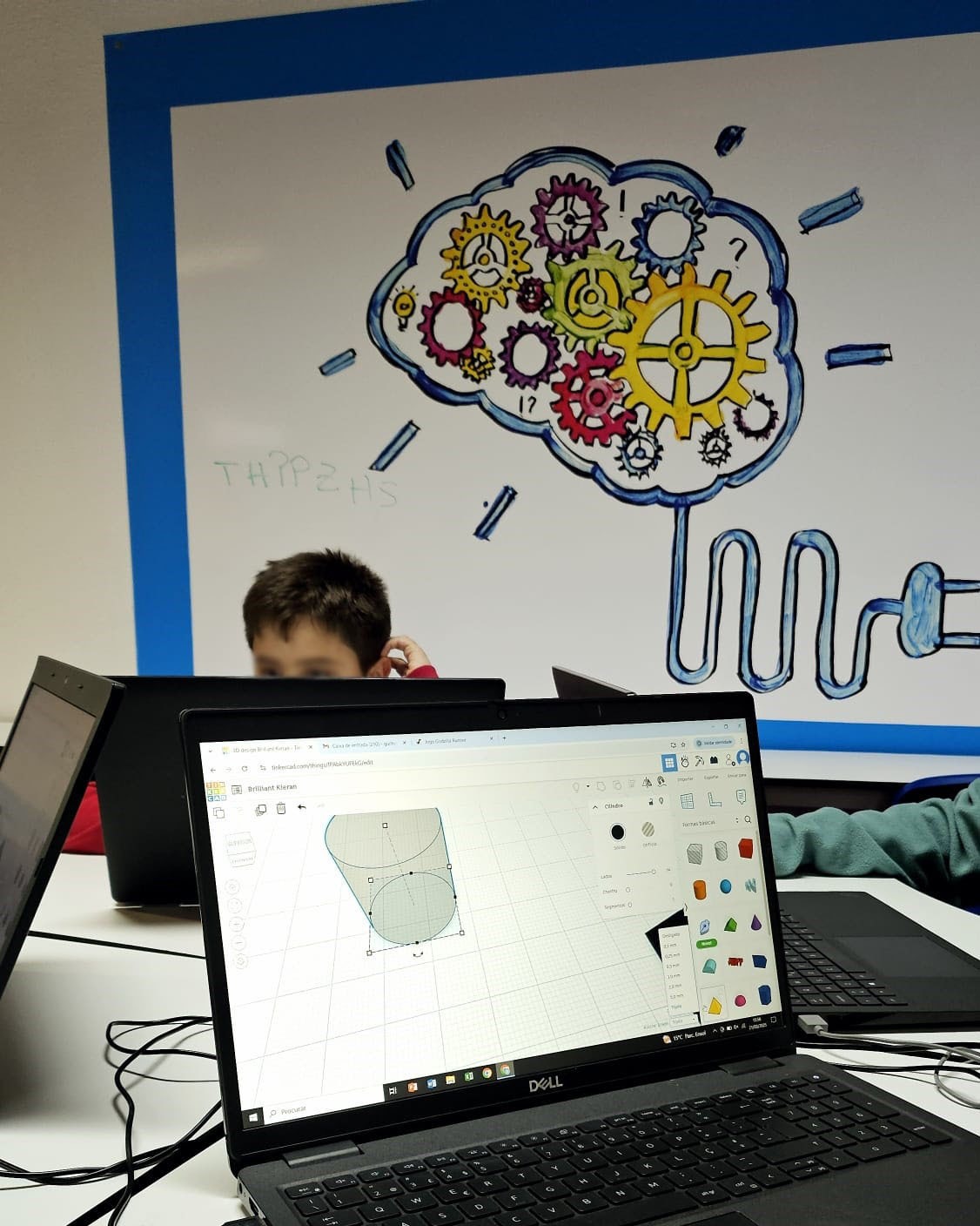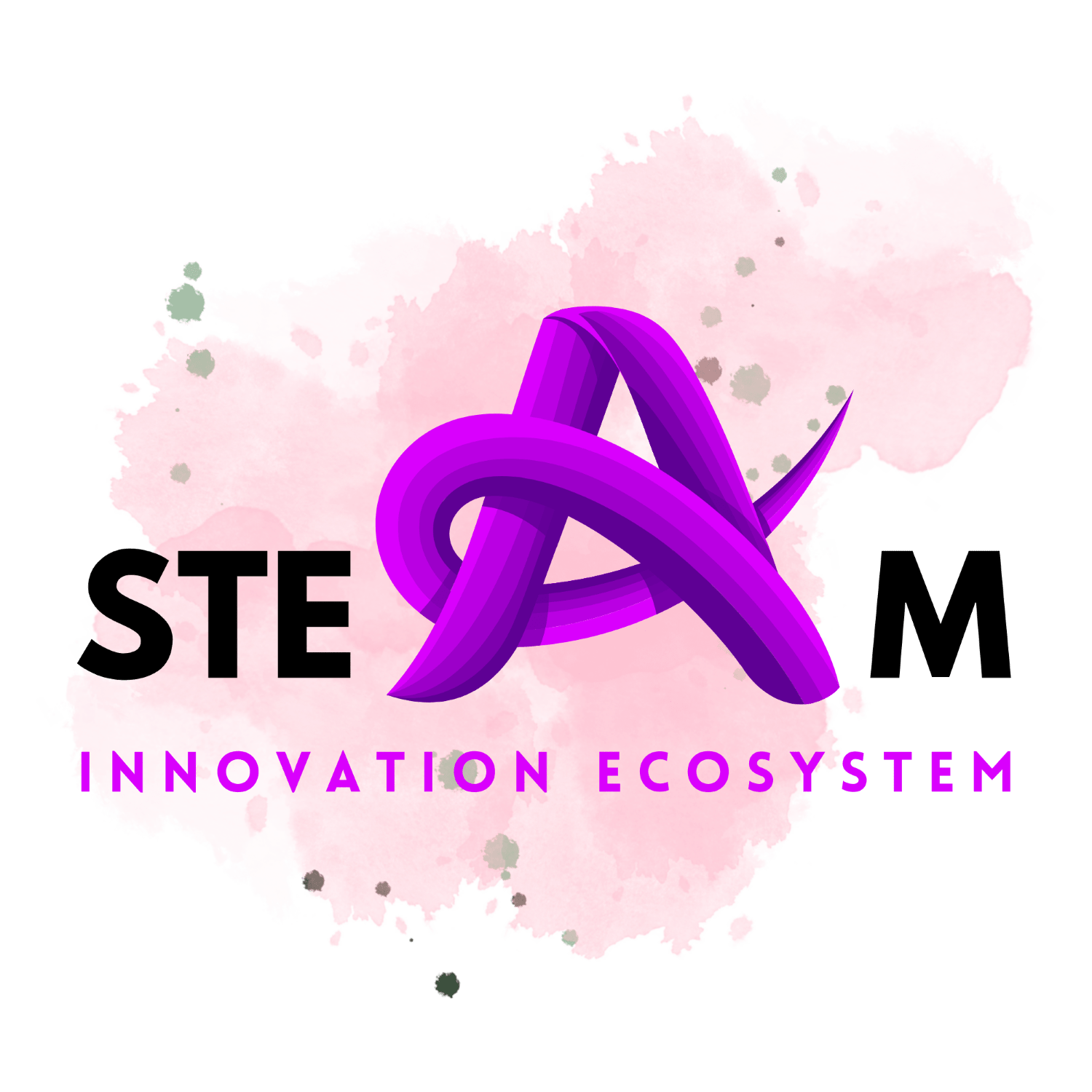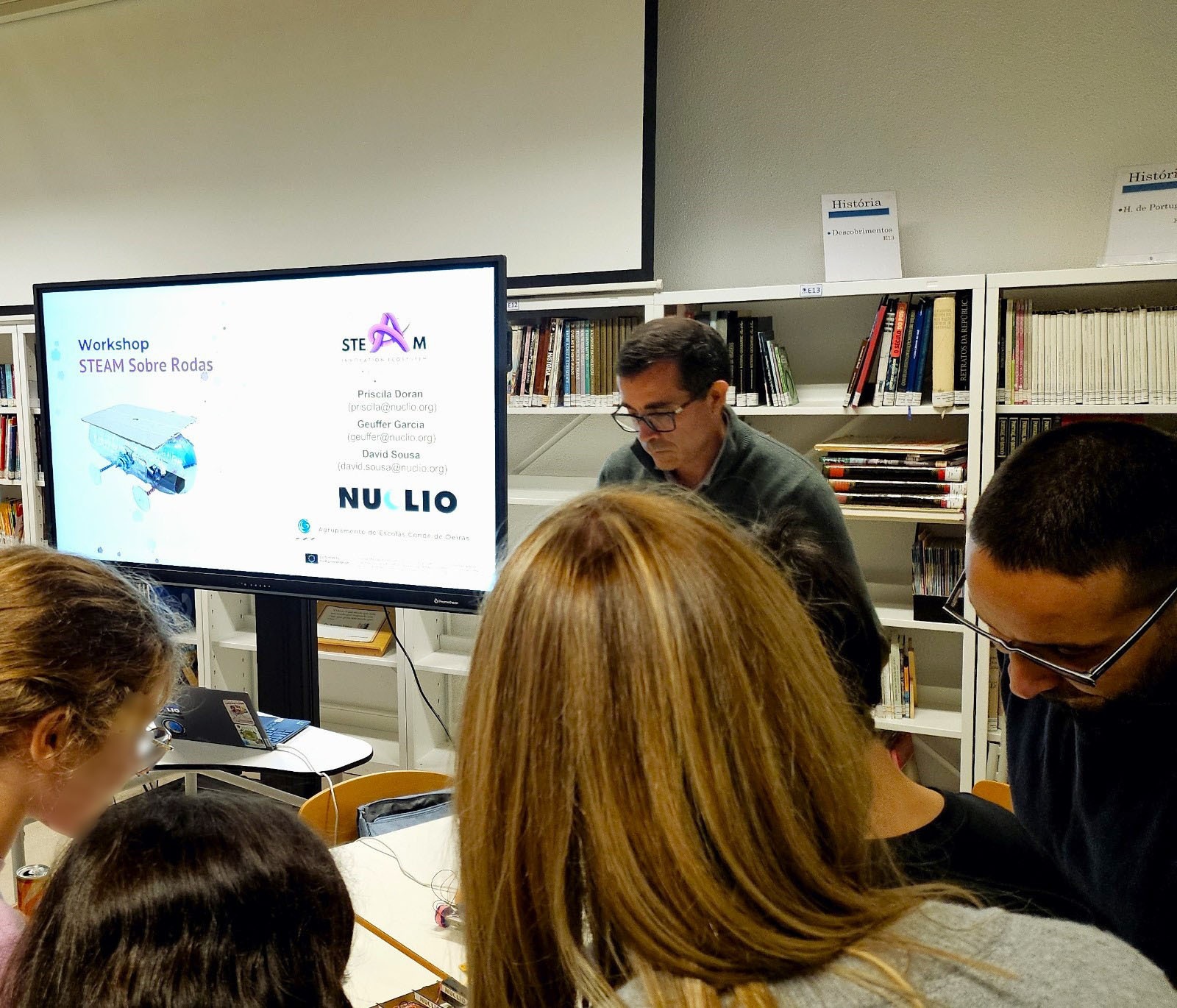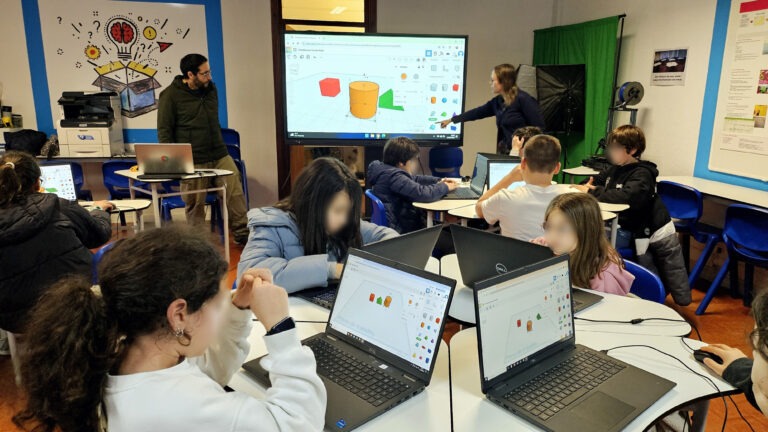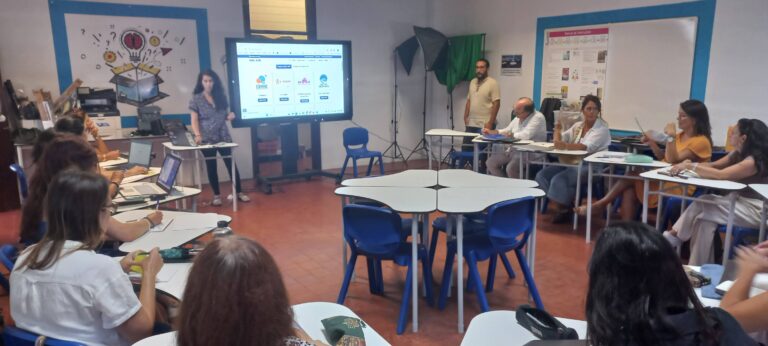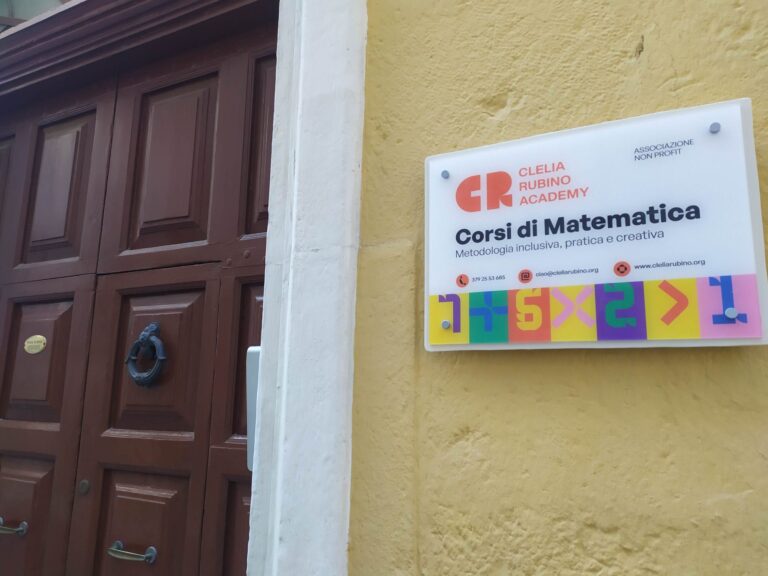Article by Nuclio
As part of the STEAM INNOVATION project, a local forum was held in Portugal on 29th November, bringing together a diverse group of participants, including students, parents, teachers and school board representatives. The event aimed to lead participants to reflect on the present and future of STEAM education and gather their valuable feedback, in order to ensure the project objectives and activities keep being in alignment with their needs and aspirations. After the forum, we had a workshop where the participants used their imagination and creativity to carry out a hands-on project building an electric car with recycled materials.
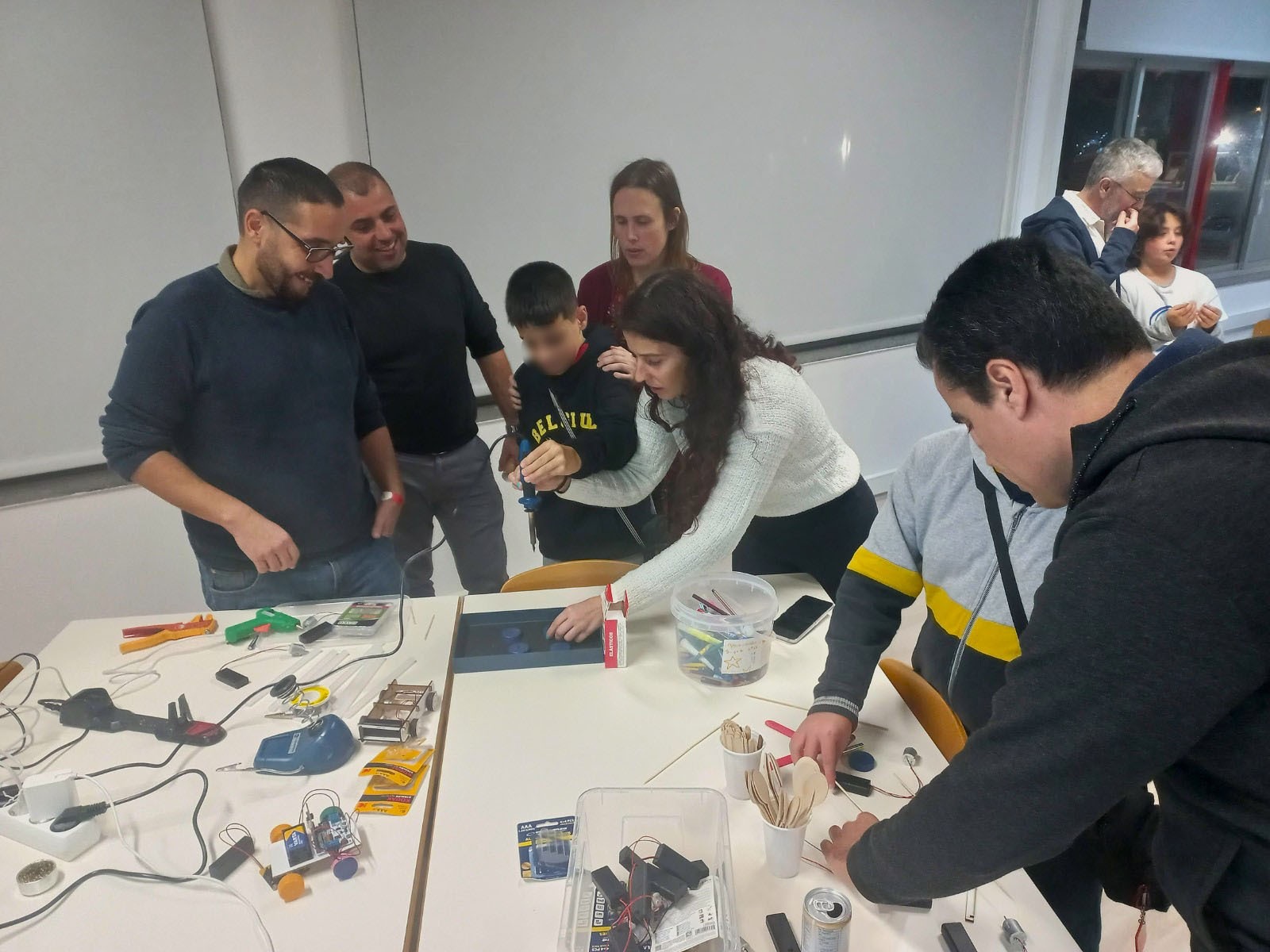
All participants unanimously recognised the importance of STEAM education in the preparation of students for an ever-changing world, despite coming from different backgrounds and experiences. The discussions held during this forum highlighted a strong consensus among participants, such as:
- STEAM education as an important tool to foster problem-solving skills and critical and creative thinking across disciplines.
- Parents, teachers and school board members recognised STEAM education as a potential bridge between classroom learning and real-world challenges.
- Students described STEAM education as fun, engaging and relevant, the way they want to learn.
- All participants emphasised that successful implementation of STEAM passes through collaboration among teachers, students, families and school leadership.

Although the value of STEAM was also widely agreed upon, teachers and parents recognised the demand for curricular restructuring, relevant and innovative teacher training, as well as more adaptable learning environments. Students asked for a more frequent use of technology and digital tools, underlining the importance of improvements to classroom dynamics. Lastly, the school board representatives highlighted the need for policy changes and opportunities for forming partnerships with other organisations outside the school, as they can become a driving force to support innovation in schools.
Participants identified several challenges that hinder the broader adoption of STEAM approaches in schools, such as insufficient training and support for teachers, limited access to technology and flexible learning spaces, resistance to change regarding traditional teaching and assessment practices, and lack of alignment between schools and educational policymakers.
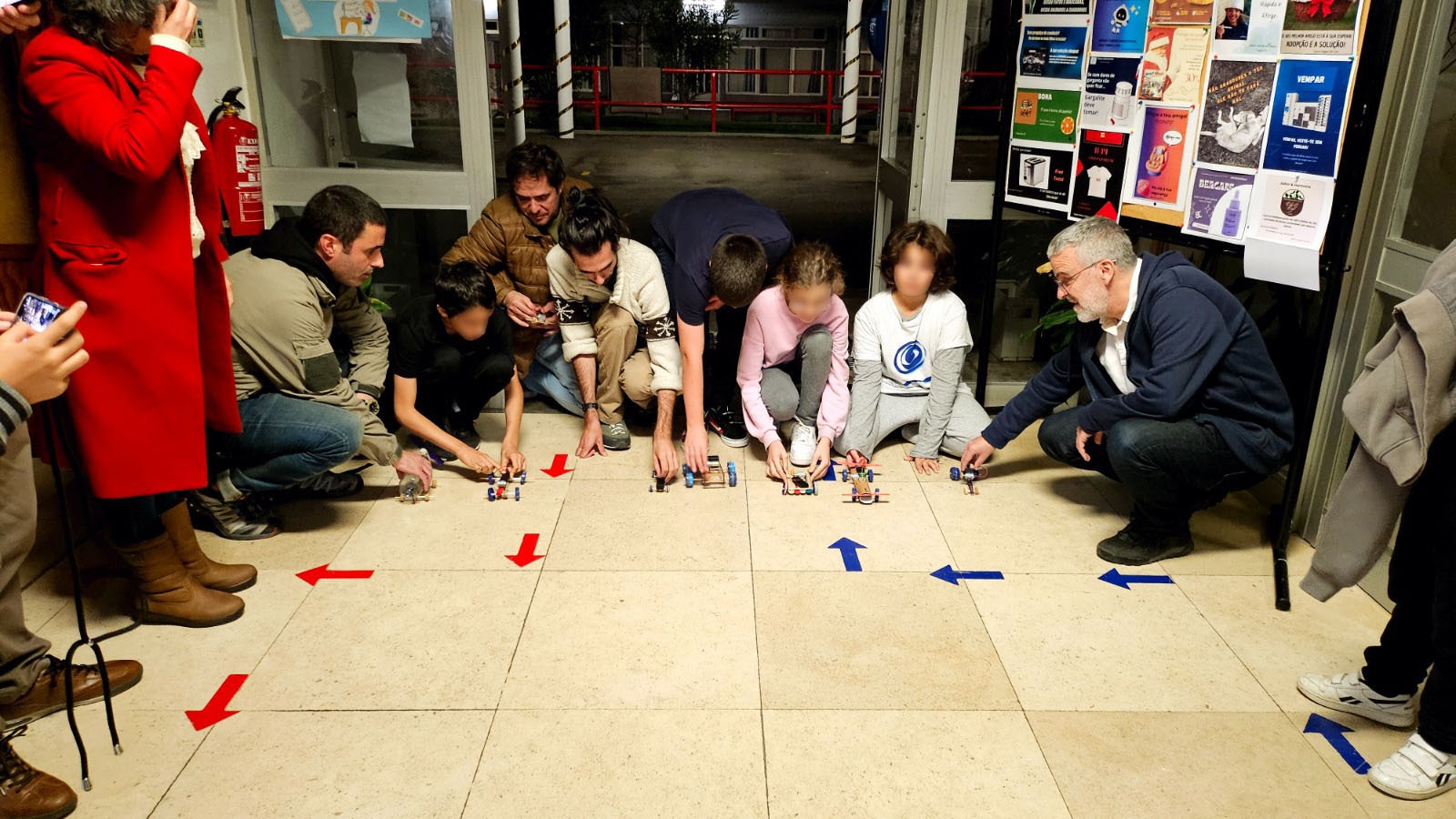
On the other hand, participants reflected on the wide range of opportunities that STEAM education can bring to them and their schools and communities. These opportunities include the involvement of parents and communities in STEAM initiatives, partnerships with local organisations that allow the enriching of students learning experiences, the promotion of project-based and transdisciplinary approaches to the current teaching methods, as well as the use of forums and workshops like the one organised by the STEAM Innovation project to inspire innovation and dialogue between different stakeholders, that otherwise might not have the change to get together and discuss these topics.
The last section of the STEAM Innovation Forum was a set of questions that will help shape the next phases of the project. The main ones were the following:
- What training programs are most effective in preparing teachers to adopt STEAM?
- How can schools meaningfully include parents in STEAM learning?
- What policy changes are needed to enable lasting innovation?
- How can assessment evolve to support both creativity and academic standards?
- What role should external stakeholders play in the implementation of STEAM?
- How can we ensure equitable access to STEAM resources and opportunities?
The feedback collected during this forum will feed into the design of the STEAM INNOVATION framework, which will influence future learning scenarios and teacher training modules created, as well as the implementation of the next co-creation sessions with educational and cultural institutions.
